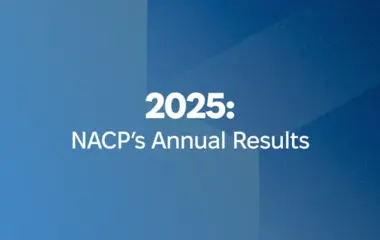During a working visit to Ivano-Frankivsk region, the team of the National Agency on Corruption Prevention (NACP) held a series of meetings with the leaders of the region and the city. To promote efficiency and transparency of local authorities and increase public trust in them, the NACP initiated a direct dialog with the regions. The focus is on achieving a balance in anti-corruption activities between punishment for corruption crimes, prevention of violations and corruption risks, and building integrity among public servants.
During his meetings with the heads of the Ivano-Frankivsk Regional Military Administration Svitlana Onyshchuk and the Regional Council Oleksandr Sych, the Mayor of Ivano-Frankivsk Ruslan Martsinkiv, and during his speech at the Regional Council session, Deputy Head of the NACP Artem Sytnyk emphasized the need to meet the expectations of society in terms of overcoming corruption, which, according to sociological surveys, is the second most serious problem in Ukraine after the armed aggression of the Russian Federation. It is the consciousness of the local leadership that determines how quickly and efficiently all preventive anti-corruption mechanisms will work.
According to Artem Sytnyk, anti-corruption measures are being implemented quite successfully in Prykarpattia. This is evidenced, in particular, by the timely connection of local authorities to the Whistleblower Portal, as well as the analysis of declarations submitted by local officials. Ivano-Frankivsk region is one of the regions of Ukraine with one of the lowest rates of late filed declarations. So far, out of more than 300 full audits initiated by the NACP, which cover the highest risk declarations, only three have been conducted in Ivano-Frankivsk.
During the meetings with the region's leaders, they also discussed the need to implement the measures envisaged by the anti-corruption programs of local authorities, hold public and open competitions for the positions of heads of municipal enterprises, avoid conflicts of interest while performing their duties, and ensure guarantees of independence of anti-corruption commissioners.
According to research conducted by the NACP, procurement is one of the areas with a high level of corruption risks. The NACP has studied corruption risks in public procurement under martial law and developed methodological materials that will be useful to local officials in implementing procurement procedures. In order to increase transparency and accountability in the use of budget funds, the NACP recommends making full use of electronic platforms with the disclosure of the most complete information on the procurement of goods, works and services. It is also important to analyze counterparties to reduce corruption risks.
Artem Sytnyk called on local leaders to responsibly implement the measures envisaged for local governments and regional administrations by the State Anti-Corruption Program until 2025 (“SACP”). The SACP, developed by the NACP and adopted by the government a year ago, is the most fundamental document designed to radically reduce the level of corruption in the country as a whole and in local governments in particular. Its implementation will help to achieve success in reducing the level of corruption and its tolerance by the society.
“The NACP pays a lot of attention to education and information work. The formation of zero tolerance to corruption does not start with detentions, but with the fact that we form a negative attitude to corruption in schools and higher education institutions. We want children who graduate from school to understand that corruption is a threat that blocks the development of the state, and vice versa, its absence is the key to its success,” said Artem Sytnyk.
He emphasized that the narrative of Ukraine's total corruption is actively used by Russian propaganda to discredit our country on the world stage, using these messages to block foreign aid, etc. The common task of all authorities is to prove in practice that this is not the case.
The NACP takes an active position in the process of building trust in the authorities, building integrity in communities and society as a whole. So far, more than 20 local authorities and two community associations have joined the signing of the Integrity Building Declaration initiated by the National Agency. Among them is Ivano-Frankivsk City Council.
Earlier, the NACP leadership and representatives made working visits to Lviv, Kharkiv, Dnipro, Chernivtsi, and Zhytomyr. Their goal is to strengthen the NACP cooperation with the regions, engage communities in building integrity, help minimize corruption risks, and strengthen cooperation with secondary and higher education institutions, journalists, and NGOs.









